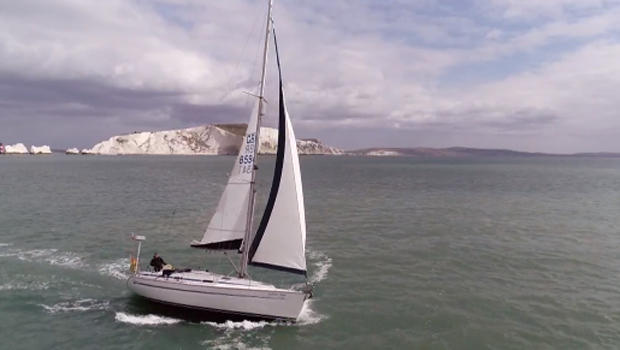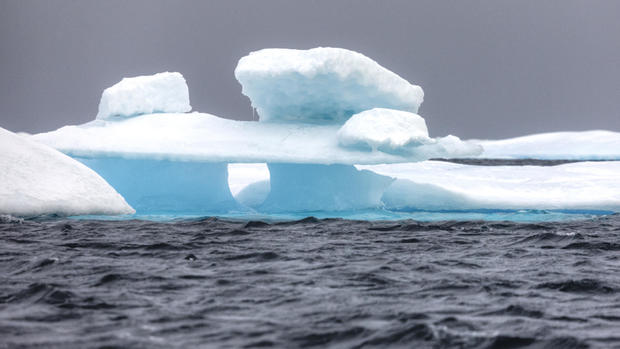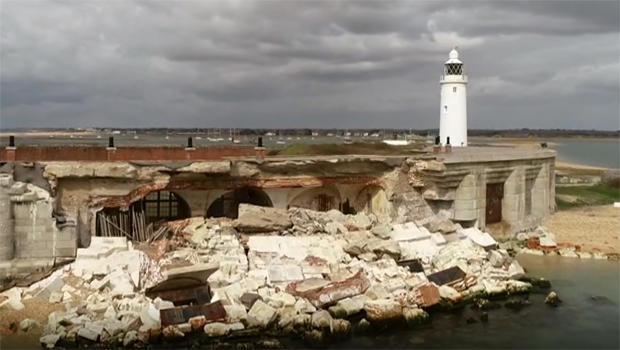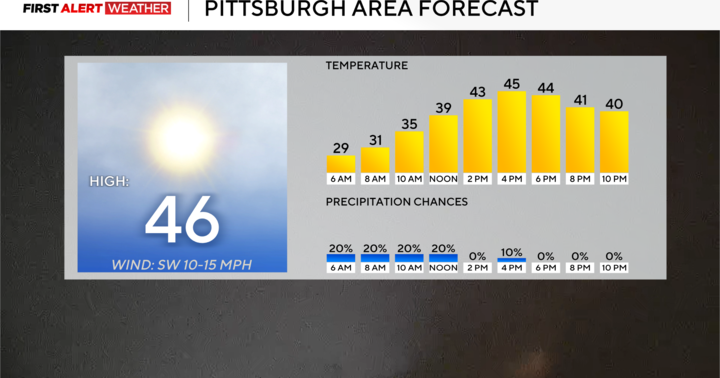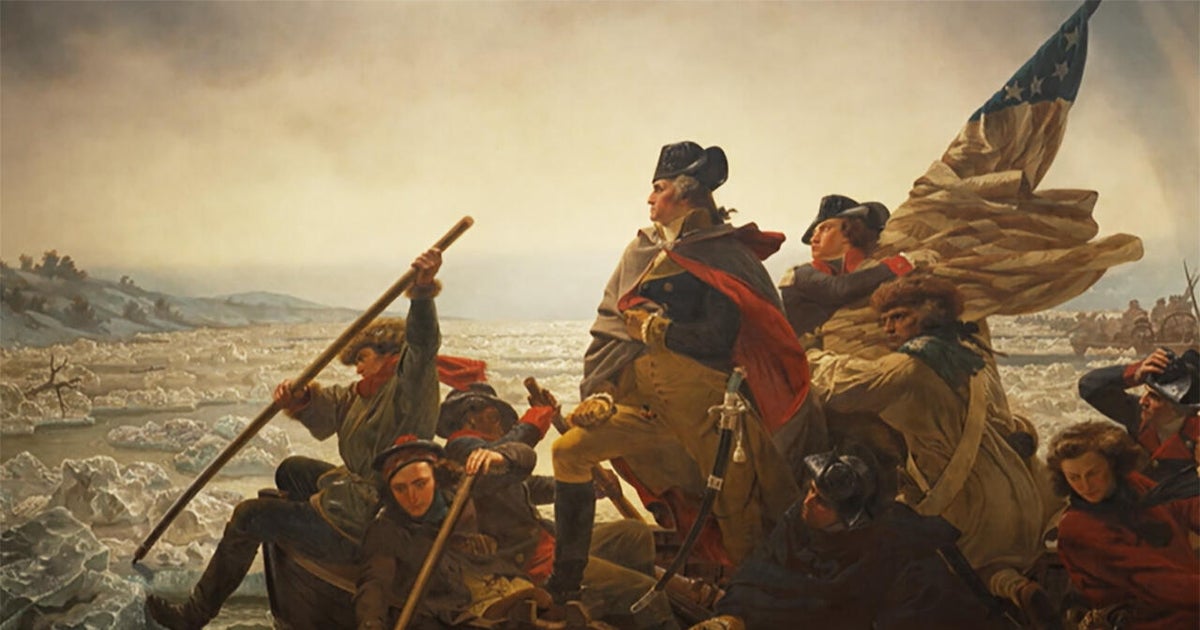How the Earth's oceans protect us from climate change — and how that may "come back and bite us"
This morning, CBS News continues its series "Eye on Earth: Our Planet in Peril," a week of special coverage on our changing planet, leading up to Earth Day this Thursday, April 22. In a new CBS News poll, 56 percent of Americans say climate change is urgent and should be addressed "right now."
Rising sea levels are among the most visible effects of climate change. With water covering more than 70 percent of the Earth's surface, it is key to our survival.
We sent Mark Phillips out to the English Channel, to report on how this force of nature affects us all.
Let's start this with a confession: this may be the most self-indulgent story I've ever done. But it's in a good cause.
They said they wanted to focus this series on the climate change crisis in a way that people can relate to. They said, let's look at specific ways in which lives are being affected. Let's look at what is happening, for example, with... water.
So I said, "Water? I know where to find some."
Once this was a world of wind and water and sun. Now we call them "renewables." Offshore wind farms. Solar power arrays. But the ocean is actually a good place to start a series on climate change, because the effects are often felt out here first. And what happens here, affects everywhere else.
We all know that global warming is raising sea temperatures and thawing the icecaps in the North and South Polar regions. And we know that, as chunks of glaciers and ice sheets break off and float away, they melt – causing sea levels around the world to rise.
How much is the sea level rising? We know that too. According to NASA, sea levels are up, since the year 1900, about eight inches. And we also know that the rate at which the waters are rising is speeding up.
Remember when Hurricane Sandy hit New York City in 2012? Get used to it. Severe storm flooding used to be considered a once-every-500-years event. Now it's once-every-25 years. And within the next three decades the National Academy of Science predicts this sort of thing may happen once every five years.
You don't have to peer into the future to get a sense of the consequences of climate change. They're happening right now and right here.
The fortification Hurst Castle, on the coast of Hampshire, was built 500 years ago by Henry the VIII to keep the French out of these waters. And 500 years ago, he built it to last (unlike his marriages, maybe). But last winter, a storm rose up and the waters rose up, and it collapsed.
Five hundred years!
Weather patterns aren't what they used to be.
According to University of Southampton oceanographer Simon Boxall, "We get the highest tides, we get the strongest storms, we get the warmest winters, the coldest winters, the warmest summers, the wettest summers. All these extremes are happening year after year."
Temperatures, sea levels and storms, you can measure. But the oceans play another, more mysterious role in the climate story. If it weren't for the oceans, the planet would be warming even faster.
Phillips asked Boxall, "One of the new areas of study, I gather, is what we're learning about what kind of role the world's oceans have played really in protecting us from ourselves?"
"The oceans are a huge heat store, and they absorb that energy coming in from the sun very efficiently," Boxall replied.
"Like a storage heater?"
"A huge storage heater. And of course, the Earth is 71, 72 percent ocean. So, it's buffering that energy."
"I feel a 'but' coming."
"The big 'but' is, of course, as with any storage heater, that energy is there, and it could come back and bite us," Boxall said.
A lot of scientists think those weather extremes and those rising waters are evidence the "bite back" has already begun.
When you sail through these waters, you sail through the wake of history – natural and human. But now, for the first time, one of the animal species on this planet is determining the course of the whole world's future. That species, of course, is us.
See also:

